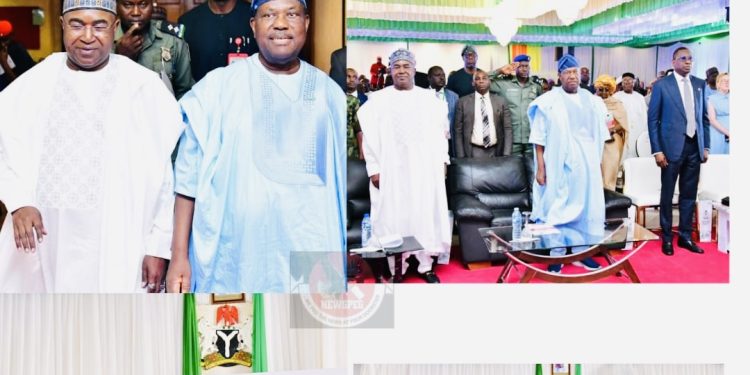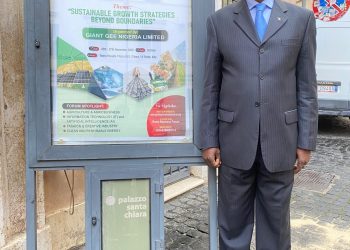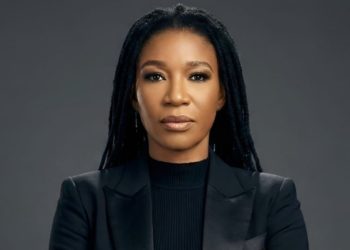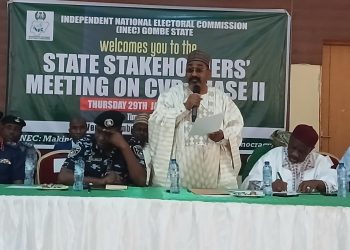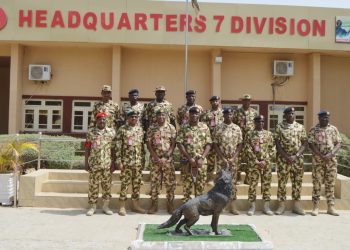…as agency arrests 66,085; seizes 11.1million kg drugs; convicts 12,201; and rehabilitates 26,393 in 53 months
President Bola Ahmed Tinubu has called on all Nigerians to join the fight against substance abuse and illicit drug trafficking, stating that the battle should no longer be viewed as the sole responsibility of government. According to him, it must evolve into a nationwide movement, involving families, faith leaders, civil society, youth groups, community heads, businesses, and, importantly, individuals with lived experience of drug abuse.
This was disclosed in an official statement issued by the Director of Media and Advocacy at the National Drug Law Enforcement Agency (NDLEA), Femi Babafemi, following President Tinubu’s keynote address delivered at the grand finale of the 2025 World Drug Day commemoration. The event, held at the Presidential Villa Conference Centre in Abuja on Thursday, 26th June 2025, brought together top officials, advocates, and partners from across the country and beyond.
Represented by the Secretary to the Government of the Federation (SGF), Senator George Akume, President Tinubu underscored the need to tackle not just the symptoms of the drug crisis, but its root causes, which include poverty, inequality, conflict, and violence. He said addressing these issues with a comprehensive and human rights-driven approach is essential in building a society where drug prevention is robust, treatment is readily accessible, and recovery is celebrated.
“Let us also be clear: this fight is not one for governments alone. It must be a national movement driven by families, faith leaders, civil society organisations, youth groups, community leaders, businesses, and, crucially, people with lived experience. Their voices matter. Their stories inspire. Their leadership is essential,” he stated.
He assured the audience of Nigeria’s unwavering support for the global fight against illicit drugs and trafficking. “We are committed to working hand in hand with all nations to end this menace and tame illicit trafficking of substances. Together, we can dismantle the systems that sustain this crisis. Together, we can build a future where prevention is strong, treatment is accessible, and recovery is not just possible—but celebrated,” the president noted.
He said this commitment aligns with the Renewed Hope Agenda of his administration, which prioritizes poverty alleviation, youth empowerment, and national unity through initiatives such as the student loan scheme and other social investment programs.
President Tinubu also used the occasion to commend the NDLEA and its leadership under Brigadier General Mohamed Buba Marwa (Retired) for what he described as globally recognized successes in both drug supply and demand reduction. He highlighted the agency’s vigorous nationwide sensitization campaigns, rehabilitation initiatives, and reintegration programmes for recovering drug users, noting that these efforts have earned the country commendation and stronger partnerships with international agencies and governments.
In his welcome remarks, the NDLEA Chairman/Chief Executive, Brig Gen Mohamed Buba Marwa (Retd), emphasized the urgency of prioritizing drug use prevention. He noted that Nigeria, with a population exceeding 230 million, remains one of the countries with high drug abuse prevalence rates, a fact that calls for vigilant and proactive measures by parents, guardians, and the government.
Brig Gen Marwa stressed that the issue is no longer distant, and drug experimentation is not confined to any particular demographic. “We must acknowledge that children are especially vulnerable, and we should not dismiss experimentation with illicit drugs as behaviour limited to a particular demographic,” he said.
He highlighted NDLEA’s multi-pronged approach, combining aggressive drug supply reduction with a focus on preventive advocacy and socio-economic intervention. According to him, the Renewed Hope Agenda of the Tinubu administration provides the agency with leverage to address poverty and unemployment—two major drivers of drug use. He cited initiatives like the Nigerian Education Loan Fund (NELFUND), the Three Million Technical Talent (3MTT) programme, and efforts to boost digital economy skills and national security as factors that will help mitigate drug abuse.
Marwa stressed the role of parenting in the national anti-drug campaign. Through the agency’s War Against Drug Abuse (WADA) advocacy, NDLEA collaborates with parents, teachers, traditional leaders, and communities to raise awareness and empower stakeholders with tools to prevent drug experimentation and addiction.
“Children don’t just need money—they need the presence and voice of their parents and guardians. Parents must ask questions, dig deeper, and instill values,” he stated, while also highlighting the important role of teachers. He noted that drug education has now been integrated into the national curriculum and urged educators to use their influence to guide and protect students.
Marwa also detailed the expansive reach of the WADA campaign, noting that in recent years, over 11,123 sensitisation programmes have been carried out across schools, workplaces, religious centres, markets, parks, and communities nationwide. Millions more have been reached through consistent weekly media campaigns, while thousands have accessed NDLEA’s 24/7 toll-free helpline for psychosocial support.
On rehabilitation, the NDLEA boss disclosed that 30 treatment centres are currently active, with 26,393 individuals counselled and rehabilitated over the past 53 months. He announced the approval of seven new rehabilitation centres under the 2025 budget, which he said would significantly expand access to treatment services.
He stressed that while prevention and rehabilitation are key, they will not yield lasting results if access to illicit drugs remains unhindered. “Put simply, while we work strategically to prevent individuals from initiating drug use, we must simultaneously shut down the pipeline through which these harmful substances are distributed. We must remove traffickers from the equation,” he declared.
Marwa disclosed that the agency has arrested 66,085 drug offenders over the past four and a half years, including 94 notorious drug barons. During this period, NDLEA has seized over 11 million kilograms (11,143,717.44kg) of assorted illicit substances, secured thousands of convictions, and now regularly secures life sentences in court for drug trafficking.
He expressed deep gratitude to partners and supporters of NDLEA’s work, including President Bola Tinubu, the National Assembly, the Nigeria Governors Spouses’ Forum, and private sector actors like the MTN Nigeria Foundation. He also acknowledged the support of international partners including the United Nations Office on Drugs and Crime (UNODC), the United States DEA, UK Border Force, NCA, and the governments of Germany and France.
Speaking at the event, the Attorney General of the Federation and Minister of Justice, Prince Lateef Fagbemi, SAN, described drug abuse as a major national security, public health, and economic challenge. He stressed the need to embed prevention efforts within the country’s education, health, and justice systems, and affirmed that the federal government has put in place various action plans and control frameworks to significantly reduce the prevalence of illicit drug activity and its consequences.
In his remarks, the Senate President, Senator Godswill Akpabio, represented by the Chairman, Senate Committee on Drugs and Narcotics, Senator Ibrahim Dankwambo, emphasized the seriousness of the crisis. “The fight against the drug scourge is not a war of convenience, it is a war of necessity. Every life lost to addiction is not just a tragedy, it is a failure of our collective will. Every young Nigerian drawn into this abyss is a call to arms,” he declared.
Cheikh Ousmane Toure, the Country Representative of the United Nations Office on Drugs and Crime (UNODC), stressed the importance of seeing prevention, treatment, and recovery not as luxuries but as life-saving investments. He reiterated the UNODC’s commitment to helping Nigeria break the vicious cycle of addiction, organized crime, and marginalization.
He said, “Together we can break the vicious cycle of drug abuse, organized crime and marginalization and together we can build a safer, healthier and more hopeful Nigeria.”


